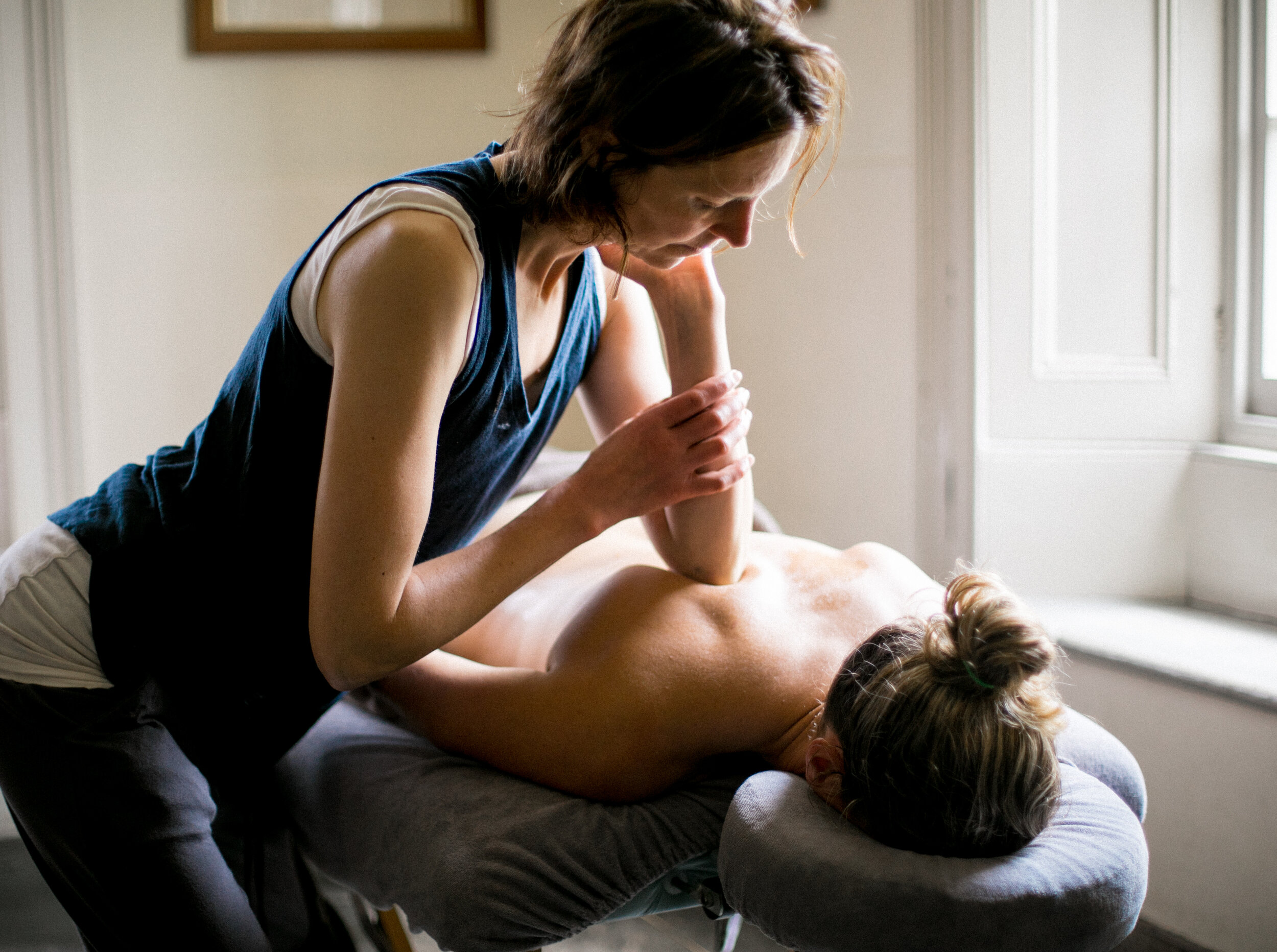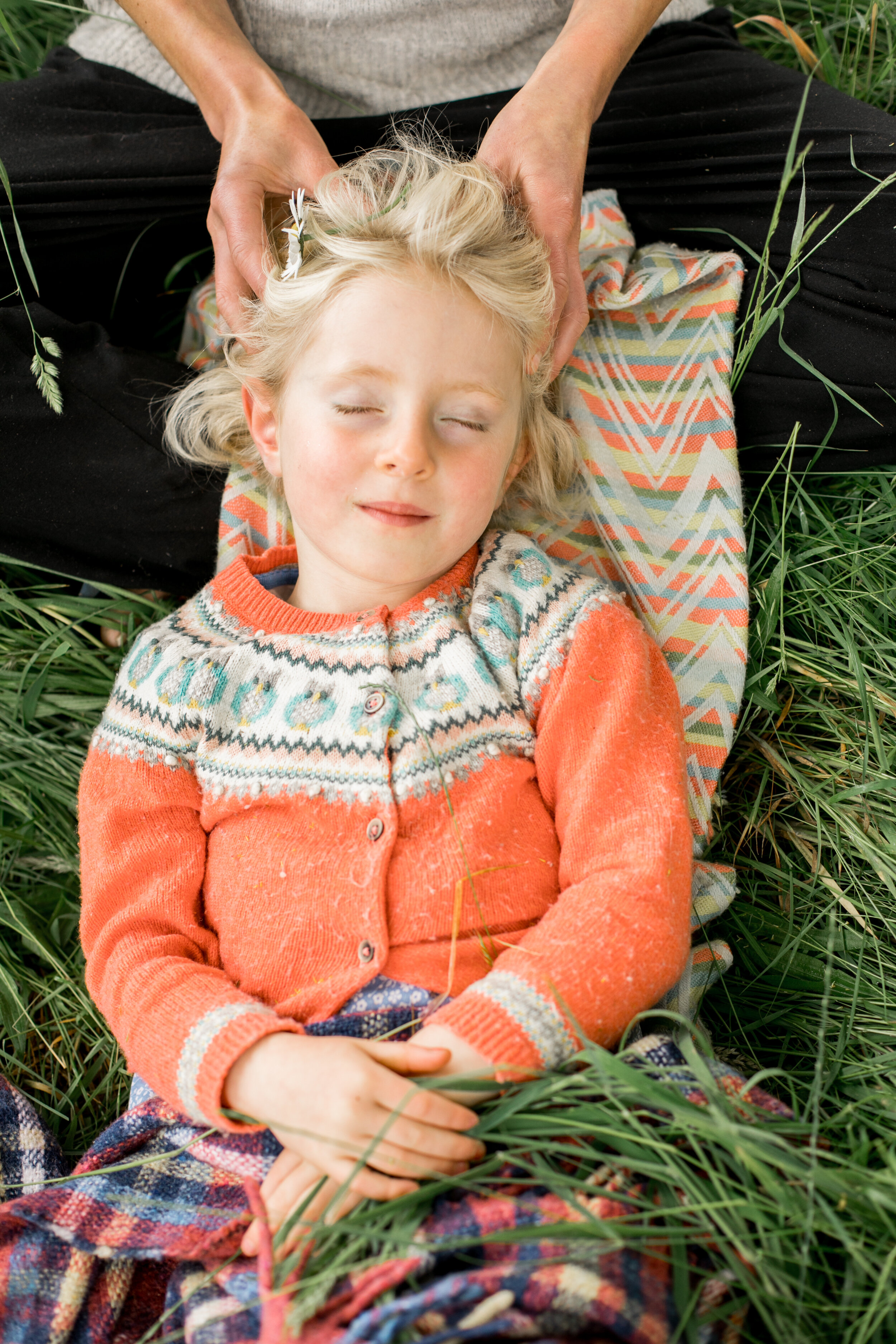Touch is one of the most undervalued senses - we are living in a world where many people are exposed to less touch than ever before, despite being so connected through the digital world.
This sentiment, discussed by Dr Rangan Chatterjee and Professor Francis McGlone in a recent episode of the Feel Better, Live More podcast, struck me. It resonated - not only in terms of my work as a massage therapist, seeing the importance for many people of the simple value of touch - but for myself too. We live in a world where we can feel connected through the digital realm, yet research shows that we are having less and less direct interactions within our friendship groups and communities - even with our partners; these are the relationships through which we touch and are touched - positively, nurturingly - where even the smallest of gestures can make a difference.
The podcast is fascinating, I highly recommend listening. One dimension that was new to me was the knowledge given by Professor McGlone, a neuroscientist, that there are two types of nerve cells through which we experience touch, for simplification these can be termed ‘fast’ and ‘slow’. The ‘fast’ nerve cells are involved with sending quick signals to the brain in order to protect us - for example when we touch something very hot and we immediately let go. The ‘slow’ touch nerves directly impact on how we feel - their major property is to help regulate our emotional states. We have evolved in such a way that we are programmed to want touch - in fact to need it; and yet in today’s world many of us are touch-deprived.
The importance of touch for newborn babies is recognised and skin-to-skin contact for the newborn with both mother and father is widely encouraged immediately following birth - helping to regulate the babies’ breathing, heartbeat and blood sugar levels as well as forging bonds between parents and their child.
But our need for touch doesn’t stop as we grow up - for children or adults. Genuine, nurturing touch (also known as ‘warm touch’) releases neurochemicals; endorphins and hormones including oxytocin which plays a role in creating bonds between people - developing trust, reducing anxiety and forming attachments, be they between friends, families or partners. Touch is a crucial element of our emotional wellbeing.
What is pretty fantastic is that the benefits of positive touch extend to the person giving as well as receiving positive touch. I can vouch for this - I genuinely come away from giving massage therapy feeling calmer, more grounded, less stressed. I often say that being a massage therapist has been the perfect antidote to having three young children (at one point I had three under two years ..) - having that regular commitment to be in a calm, nurturing space where I’m connecting with someone through positive touch. Likewise with my children, if I’m giving them a massage, I definitely feel calmer, more bonded, any signs of stress dissolving. Research has shown that “a person giving a massage experiences as great a reduction in stress hormones as the person on the receiving end” (Psychology Today). It doesn’t mean to say I think that the benefits are equal, but it does show that positive touch is a two-way process.
That said, for touch to be positive (and by that I mean it has to be experienced as such for both parties) there are boundaries and context that need to be acknowledged. Positive touch relies on both parties feeling safe and supported with boundaries respected - and that can be tricky as our ‘positive touch’ barometers - how much touch we feel comfortable with - are all set differently. Some people are very comfortable hugging, others prefer a genuine handshake; as with all human interaction we have to read the context, the person we are with, and choose how to act accordingly. We have all felt overwhelmed by touch that might have been offered with good intention, but felt ‘too much’ for us - for the context, how close to us the person offering it was, the mood we were in.
I’m fascinated by this topic, yet hesitated before writing publicly about it as ‘touch’ has been tainted, it has connotations of inappropriate behaviour. There are important boundaries to be aware of regarding touch, especially regarding children - that absolutely goes without saying. Yet I feel we should not shy away from discussing ‘positive touch’, opening up conversations about what it means, and not letting touch drop away from our society through the pressures of the digital world, or the fear that it could be used inappropriately. I want my child to be hugged by their teacher at primary school when they fall over, I want to welcome people who come for a massage treatment - when it feels right - with a hug, I want to be able to hug my friends’ children without feeling I’m overstepping a mark. For any human interaction to be positive, it needs to be based on tuning-in to the other person and where they are at, it must be appropriate, and it must be authentic; the same goes for touch. But we need to have faith that we can still use touch in this way, for our benefit and for the benefit of those we interact with.
One of the joys of working in the bodywork sector is being able to share positive touch techniques with others - who can then use them within their families. During my Family Head Massage Workshops I’m always moved by the power that creating space for one-to-one time between a parent/carer and their child can have - calming, bonding, grounding. And what’s fascinating - and I didn’t expect when I first began teaching these workshops - is how much the children would also relish their chance to nurture their parents by giving them head massages.
Similarly with the Introduction to Massage courses I run, there’s such a positive energy that comes out of spending a day in a held, safe space where positive touch has been shared, and again it’s wonderful hearing feedback about how people have put these techniques into practice at home.
As Professor McGlone says: “Touch is not just a sentimental human indulgence, it’s a biological necessity”. Perhaps many of us have come to see touch as something additional, something extra, something we’ll make space for ‘if we have time’ rather than an element of our lives and our families’ that is fundamental for our wellbeing.
The podcast on positive touch has got me thinking - I’m already fully subscribed to the benefits that touch can bring - I should be, as a massage therapist! - but what changes might I be able to make to bring more positive touch into my life and those around me?
Just as I might make a conscious effort to be kinder in the way I speak or act, so I can try to do with positive touch.
Remember the value of direct human interaction - through which positive touch naturally takes place. The digital world is here, it’s important, we rely on it in so many ways. But make sure I’m still creating enough space in my life for direct connections with friends and family - and be mindful how this might play out for my children as they grow up and learn about balancing their own connections with the digital world.
With three young children, there can often be arguments or an underlying sense of tension - between the children as someone takes the toy the other was playing with, or my frustration as I ask for the fiftieth time for one of them to put their shoes on as we’re running late for school. Consider whether positive touch can be part of helping to ease the tension and show that the love and bond are still there, even when verbally there’s a tension around, for example, getting a task done.
Try to create more space at bedtime with the children for positive touch - using Indian Head Massage techniques that they love, that calm and relax us all. It just means setting a little more time aside for the bedtime routine ..
And finally - when appropriate - give that hug.
I’d love to know - what are your views on positive touch? Do you feel we could build in more positive touch to our families and communities?
References:
‘Feel Better, Live More’ Podcast, Episode 45 - https://www.drchatterjee.com/touch-forgotten-sense-professor-francis-mcglone/
‘The hands-on power of touch’ - https://www.theguardian.com/lifeandstyle/2016/jul/31/the-hands-on-power-of-touch-psychology-well-being
‘Skin to Skin with your baby’ - www.babycentre.co.uk/a25017209/skin-to-skin-with-your-baby
‘What is Oxytocin?’ - https://www.hormone.org/your-health-and-hormones/glands-and-hormones-a-to-z/hormones/oxytocin
‘The Power of Touch’ - https://www.psychologytoday.com/us/articles/201303/the-power-touch




